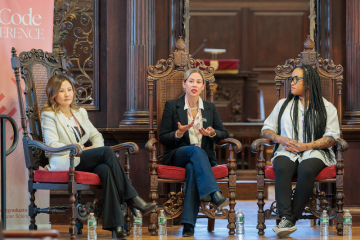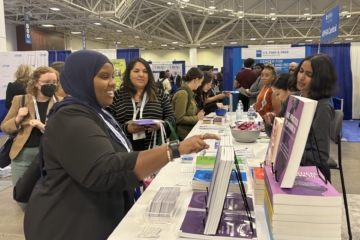As members of the DrPH Coalition, which was launched at the American Public Health Association’s annual meeting in November 2019, we recently suggested some ways that DrPH students and alumni can get through these challenging times, both in public health and life in general. We also realize that anyone interested in public health may find this information useful, so here are five ways to contribute to protecting our health in these uncertain times.
1. Follow the rules.
Based on your location, governments and public health officials are recommending certain levels of quarantining, social distancing, and avoiding crowded places. We must follow these directions — it’s the first step for us as public health practitioners and researchers. However, we also need to care for ourselves. In most areas, it is still okay to take a walk by yourself and enjoy the outdoors, being mindful to put some distance between yourself and others. Remember to also stay connected virtually to family and friends.
2. Direct friends and families to credible sources, like the CDC.
Not everyone is an infectious disease specialist, but as a public health professional, you know how to identify valid resources. Sharing or reposting advice from reputable sources to your friends and families can go a long way. You don’t have to write all your own recommendations, but share trustworthy sources and add that you support the advice. Here are links on leadership and social distancing you might want to share.
3. Lend a hand.
There are many opportunities to make an impact locally. Public health departments are looking for volunteers, especially in rural areas. Your knowledge can help answer basic questions that are flooding in. Another option is to lend a hand. Some areas are organizing volunteers to offer assistance to those in need, such as people with mobility problems and the elderly. Give blood. Donate to your local food bank. Or just buy groceries for a neighbor — just checking in could make someone’s day and help keep them safe.
4. Advocate personally.
Call, email, or write letters to your representatives at the state, local, or federal level, and let them know what you think is needed. Another opportunity is to speak out about your public health knowledge by using social media, op-eds, or your local media. Even if you don’t specialize in infectious diseases, you can speak about COVID-19 from your particular discipline. Here’s some research on communicating to the public in times of crisis — communications during a pandemic and health risk communication.
5. Advocate collectively.
This crisis epitomizes everything we in public health think the field needs — more resources, more leadership skills, and more compassion and human dignity. The world is looking for and in need of emerging public health leaders. Even if you’re still in school, you have a broad knowledge of public health that can be useful to others.
If there is ever a time for us to come together it’s now. Be careful, be safe, and take care of yourself. And to those of you on the front lines responding to COVID-19 — first responders, health department staff, researchers, and others — thank you for all you’re doing.
Get information about the DrPH Coalition. For questions, email [email protected].
Cristina Alonso, CPM, MPH, is a second-year DrPH student at Harvard T.H. Chan School of Public Health. Eric Coles will earn his DrPH this year from the Harvard T.H. Chan School of Public Health. Tiffany Eaton is a third-year DrPH student at Drexel University’s Dornsife School of Public Health. Stephanie Kang will earn her DrPH this year from Harvard T.H. Chan School of Public Health. Maryam Khalid, MPH, will earn her DrPH this year from Harvard T.H. Chan School of Public Health. Michelle L. Slimko, DrPH, is a graduate of the University of Illinois at Chicago School of Public Health.





